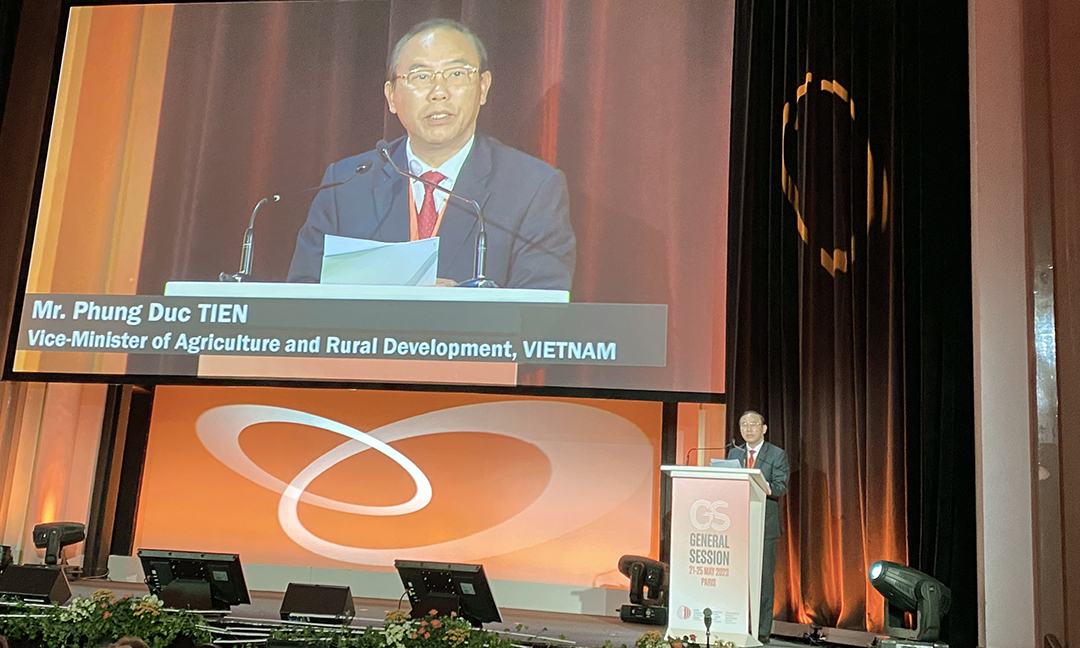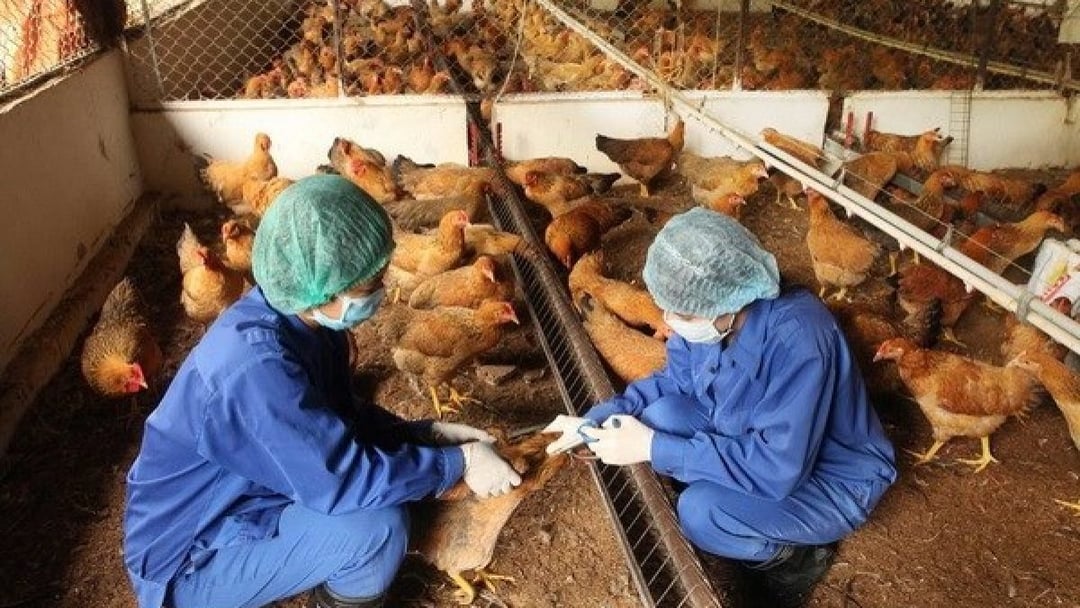Vietnam Pays Special Attention to Antimicrobial Resistance in Livestock
Deputy Minister of Agriculture and Rural Development, Phung Duc Tien, delivered a strong commitment during his speech at the opening ceremony of the 90th General Assembly of the World Organization for Animal Health (OIE).

The Deputy Minister – Phung Duc Tien emphasized that Vietnam has been paying significant attention to the issue of antimicrobial resistance.
On the afternoon of May 21 (Paris time, France), the OIE held its 90th General Assembly. Representing the Government of Vietnam, Deputy Minister Phung Duc Tien attended and delivered a speech at the opening ceremony.
Over the years, Vietnam has implemented numerous measures to enhance animal health and welfare while collaborating with other countries to manage animal health risks through a One Health approach.
“As a member of the World Organization for Animal Health, Vietnam has been integrating these objectives into national tasks, as reflected in legislative documents such as the Veterinary Law, the Livestock Law, and the Fisheries Law. These objectives are also incorporated into livestock and fisheries development strategies, as well as national programs and plans for animal disease prevention and control,” he said.
Since 2003, Vietnam has proactively addressed zoonotic diseases and antimicrobial resistance in agriculture. After 20 years, the Vietnam One Health Partnership Framework for these issues has reached a new level by employing a multi-sectoral approach co-chaired by three ministries: Natural Resources and Environment, Health, and Agriculture and Rural Development.
Vietnam is among the first countries to introduce a national One Health multi-sectoral action plan for controlling zoonotic diseases. This plan specifies tasks and goals for five-year phases and clearly defines the roles of stakeholders in disease prevention and control.
Through the action goals of the OIE—transparency, scientific information, international solidarity, biosecurity, veterinary services promotion, food safety, and animal welfare—Vietnam has received significant technical support.
The Deputy Minister listed five key tasks: Conducting four capacity evaluations of the veterinary sector, Establishing a robust legal framework, Enhancing laboratory capacity and producing vaccines for animal diseases, Co-organizing several significant OIE events in Vietnam and Strengthening international cooperation and promoting trade.
“With international community support and the unrelenting efforts and adaptability of the veterinary sector, Vietnam has achieved remarkable milestones in recent years,” the Minister of Agriculture and Rural Development emphasized.

Vaccines: An Effective Solution for Disease Prevention in Livestock
Currently, Vietnam has effective control over diseases in livestock and aquaculture, including dangerous zoonotic diseases such as avian influenza, rabies, porcine reproductive and respiratory syndrome (PRRS), foot-and-mouth disease, and African swine fever. Moreover, Vietnam has established over 2,300 disease-free farming facilities and zones and has developed and produced more than 16,000 veterinary medicines and vaccines, meeting over 80% of domestic demand.
Notably, in 2022, Vietnam collaborated with scientists from the United States Department of Agriculture to successfully research and produce an African swine fever vaccine.
Thanks to robust veterinary practices, Vietnam’s livestock industry has achieved an average growth rate of 5-6% per year. By the end of 2022, Vietnam’s poultry population exceeded 550 million, the pig population reached approximately 26.3 million, and the cattle population surpassed 6.6 million. The aquaculture sector grew at an average rate of 3-4% annually.
To sustain growth in livestock farming, aquaculture, and veterinary practices, the Deputy Minister urged the OIE to focus on five areas, including effective control of antimicrobial resistance and research and production of critical vaccines.
On behalf of the Vietnamese Government, Deputy Minister Phung Duc Tien expressed gratitude to the OIE for providing mechanisms and platforms for global collaboration in protecting animal health.
He reaffirmed Vietnam’s commitment to supporting and integrating the OIE’s objectives into national frameworks while welcoming and expanding cooperation in safeguarding animal and human health.
The World Organization for Animal Health, recognized as a reference organization by the World Trade Organization (WTO), admitted its 182nd member, Saint Lucia, in 2018 and has maintained this membership count since.
Currently, the organization has permanent relations with 45 international and regional organizations. In 2024, it will celebrate its 100th anniversary.
Source: Bao Thang
Vietnam Agriculture Newspaper
